Resources
What is Food Urbanism?
Upcoming events
You don't have access to any upcoming eventsSearch
Support

- FUI is supported by a grant from the Swiss National Science Foundation under the National Research Programme NRP 65 "New Urban Quality"
M.E.P La Casaz

Le MEP de la Casaz, à Bulle vise la qualité d’intégration paysagère d’un nouvel ensemble de logements dans un tissu villageois de faible densité. Le site, à proximité immédiate du centre, offre un cadre paysager exceptionnel bénéficiant de vues remarquables, …
+ read more
Chamard châtelard, Yverdon-les-bains
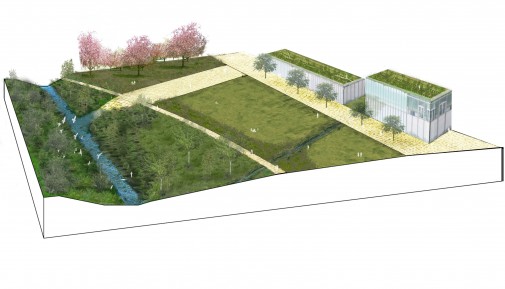
Suite à l’abandon du projet de canal Rhin-Rhône, et la disponibilité consécutive de larges espaces auparavant réservés, Agglo y a lancé un MEP visant à définir les conditions d’aménagement de ce secteur partiellement bâti situé aux portes de la ville, …
+ read more
Mole Hill Community Housing
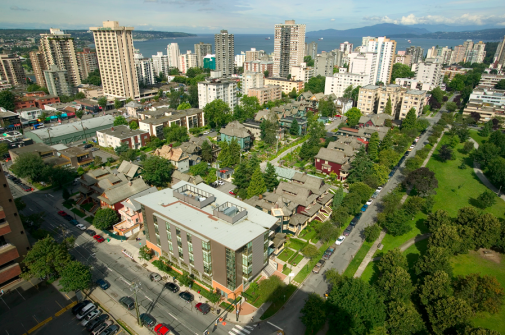
Mole Hill Community Housing Project is noteworthy not only for the retention and restoration of 26 heritage buildings, creation of 170 units of affordable housing, and a child-care precinct, but also for the incorporation of significant sustainable design features. It …
+ read more
Troy Gardens
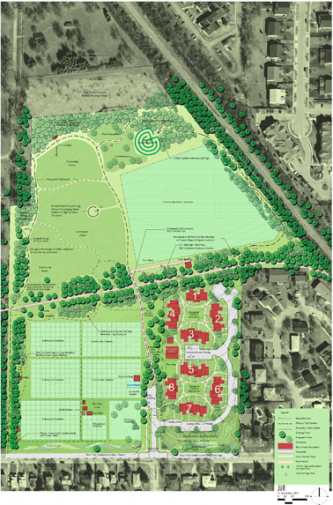
Troy Garden is growing certified organic food including a community garden, a school training programs and a Community farm of 6 ha. The aim of the project are: learn to grow and prepare array of garden vegetables and fruits, increase …
+ read more
Inuvik Community Greenhouse
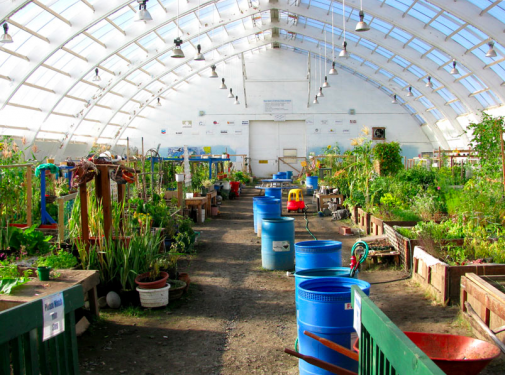
The Inuvik Community Greenhouse is the most northern greenhouse in North America located just above the 68th parallel, roughly 2 degrees north of the Arctic Circle. It is home to the Community Garden Society of Inuvik – a non-profit organization …
+ read more
Artscape Wychwood Barns

Adaptive reuse projects maintain connections to our past while conserving resources through the reuse of materials. Depending on location and use, they can also benefit communities by revitalizing neighborhoods. The Artscape Wychwood Barns project in Toronto is one such case. …
+ read more
“Le jardin des amis de Thônex”
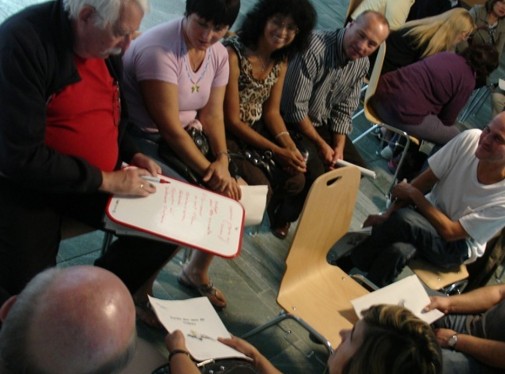
Since 2005, the non-profit organisation Equiterre (Equiterre – Partner for sustainable development) promotes the development of urban gardens in the heart of neighbourhoods on unused land through its project “Potager Urbain” (with the support of the Loterie Romande). Equiterre supports …
+ read more
Le 56 – Ecointerstice

‘Le 56′ is located on a formerly unused piece of land which had remained undeveloped due to outstanding conflicts between building developers and the municipality. In an attempt to resolve the issue, the commune of Paris invited Atelier d’Architecture Autogérée …
+ read more
Colony farm
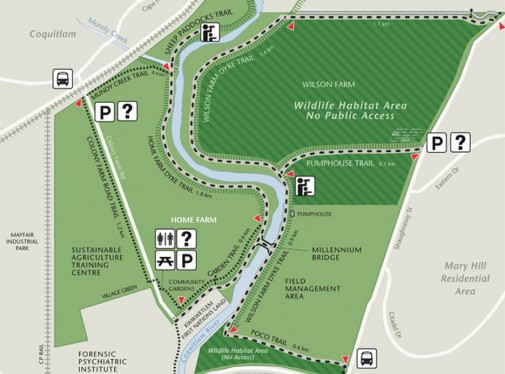
The Colony Regional Farm Sustainability Plan (COLSP) outlines a future where Colony Farm is a physical and virtual place for research, learning, and experimentation into the integration of sustainable food systems, wildlife, recreation and community. The concept of an on-site …
+ read more
21 acres Community agriculture center

21 Acres is a non-profit organization with a vision to create and operate a vital, open public space for everyone to rediscover the agricultural heritage of Washington region and learn about cutting-edge, sustainable agricultural design and technologies as well as …
+ read more
Plantages de Lausanne

The city master plan for Lausanne revealed a need for more urban garden space. To achieve this, the city identified underused spaces in dense neighborhoods across the city, and equipped them with modest infrastructure to support gardening. Each allotment space …
+ read more
Dakakker Urban Rooftop Farm
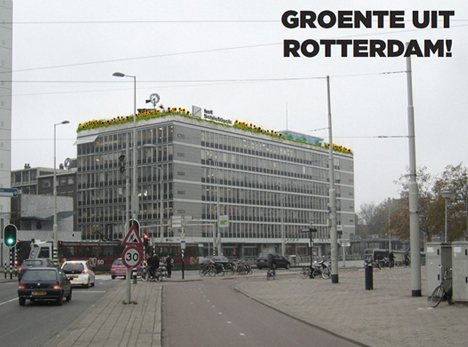
As part of the 5th International Architecture Biennial Rotterdam, the Rotterdam Test Site has included the city’s first rooftop garden on top of the Schieblock building. The garden houses vegetables. herbs and bees, with the produce being distributed to local …
+ read more
Brick City Urban Farms and EarthBoxes

Brick City Urban Farms began using EarthBoxes when they created an urban farm (with the help of the newly elected mayor) on an unused parcel of land in Newark. The soil on this plot was polluted and unsuitable for growing …
+ read more
City Farm
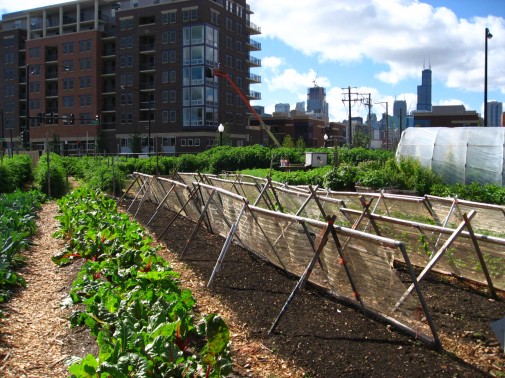
City Farm is the most recent initiative of the Resource Center. The farm turns fallow, vacant land into amazingly productive farmland. The benefits are tangible: instead of an acre of crumbling cement and overgrown weeds they have created a viable …
+ read more
« Nouveaux jardins »/ Bunte Gärten

Many refugees, asylum seekers and migrants suffer from dislocation and little social contact and the alienation can create psychological consequences.
In HEKS Neue Gärten Bern (New Gardens Bern) persons of migrational background jointly cultivate these family gardens, not only as …
+ read more
“Urban Agricultural Technicians”
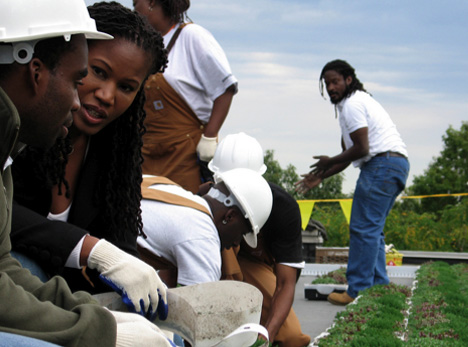
Environmental and urban planning advocate Majora Carter advises cities, foundations, universities, businesses, and communities around the world on unlocking their green-collar economic potential to benefit everyone. In 2001, she founded Sustainable South Bronx to achieve environmental justice through economically sustainable …
+ read more
Hyperlocavore

Hyperlocavore, A Yardsharing Community, connects people who have space to grow with people who are willing to do the growing. A website allows user to search for either space or a willing garden in their area. Establishing this connection between …
+ read more
Earthworks Farm

Earthworks Farm is the first and oldest organic farm in detroit and is an extension of the Capuchin Soup Kitchen, a Catholic soup kitchen serving the area’s poor. The seven farms (encompassing 20 lots) are spread over 2 blocks. A …
+ read more
City Slicker Farms

City Slicker Farms is a network of seven farms that operate to provide greater food security by distributing fresh produce on a donation-only basis to the community. The largest of the farms is 1.4 acres and houses farm beds, orchards, …
+ read more
Alemany Farms
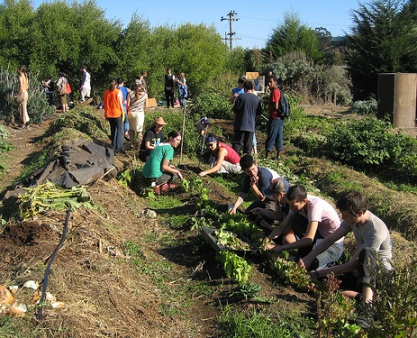
Alemany Farms is a volunteer-run farm set between residential areas, playfields and a highway. There are in-ground plantings, raised beds, hoop houses, and areas for educational groups to gather.
The Alemany Farm is a non-profit organization which uses the farm …
+ read more
SWOMP 4

Residents opposed the demolition of a building and the cutting down of trees on the property, in preparation for the building of a school. They organized and decided to use the site for a permaculture garden that is managed seasonally …
+ read more
Le plantage aux Libellules de Vernier

The Vernier project was built upon the site of an old factory. The parcels follow a system implemented in the region, where garden plots are offered to inhabitants who live within a five minute walk from the plots. Recreation and …
+ read more


